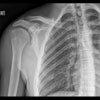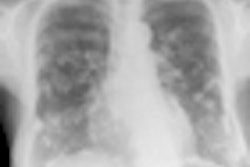Australian company Sirtex Medical is promoting the outcomes of a clinical trial in which patients with inoperable metastatic colorectal cancer predominantly affecting the liver who received radioembolization with SIR-Spheres survived twice as long as patients who only received best supportive care alone.
The study, published in the October issue of Cardiovascular and Interventional Radiology, showed the median overall survival was 8.3 months following radioembolization treatment versus 3.5 months for patients who did not. The study compared the overall survival of 58 patients who were unsuitable for all other treatment options.
Twenty-nine patients received radioembolization treatment using SIR-Spheres (Y-90-labeled resin microspheres) performed at the Universitätsklinikum Magdeburg in Magdeburg, Germany. They were matched retrospectively for prior treatments and tumor burden with a contemporary cohort of more than 500 patients who received best supportive care from three hospitals in Germany to identify 29 consecutive patients with at least two of four specific matching criteria. In addition to Universitätsklinikum Magdeburg, participating hospitals included Klinikum Magdeburg and Universitätsmedizin Berlin.
Lead author Dr. Jens Ricke, a professor and director of radiology and nuclear medicine at Universitätsklinikum Magdeburg, and colleagues reported that of the patients who received radioembolization treatment, 41.4% of the patients had a partial response and 17.2% had stable disease. Progression-free survival was 5.5 months for this group compared with 2.1 months for patients who did not receive this treatment.
SIR-Spheres have received CE Mark approval for the treatment of unresectable liver tumors, and have also been approved for this use in Australia, New Zealand, Switzerland, and Turkey. In the U.S., they have received Food and Drug Administration clearance for the treatment of nonresectable metastatic liver tumors from primary colorectal cancer in combination with intrahepatic artery chemotherapy using floxuridine.



















